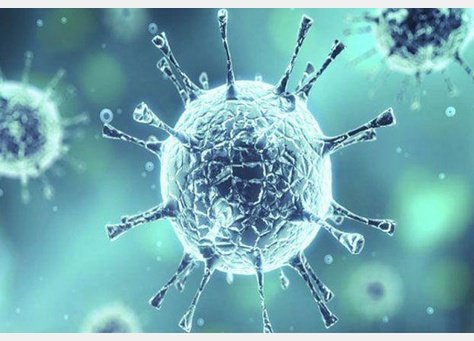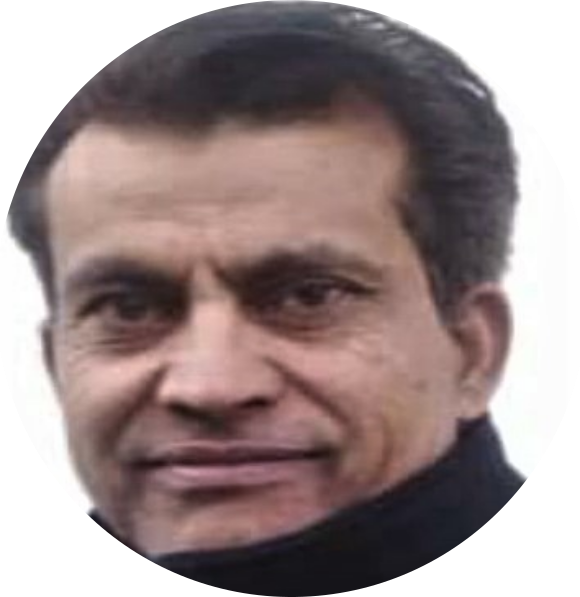Mushtaq Ahmad

There is a long history of global pandemic and epidemics, but there is also evidence that all these have been challenged by man. Consequently, there have been great losses of human lives coupled with social and economic vicissitudes as well. At the same time, every major crisis brings opportunities to rethink our systems and make them stronger to future shocks. For example, “health precaution” might sometimes have been in negligence but today, it has become a global standard to follow especially in terms of COVID-19.
How does precaution become the first agenda for life? There is no doubt every organization across the world contributed declaring it as an essential social part of every civilization, though it was already there with significant importance in societies with the low-level practicing approach.
But the question arises in the observance of how and why people accepted and reacted to it in the right directions so swiftly? Is it their fear? Is it motivation? Is it because of globally managed mass awareness programmes that managed people’s willingness or it was a set of combinations of all these phenomenal realities?
However, there is an important role of individuals and organizations incapacitating public attitudes around the world but we cannot ignore other factors that might have worked but have not come to the fore yet in a scientific profile, however, the world is waiting for vaccines etc.
Basically, “precaution” is an approach with the potential for causing harm when scientific knowledge on the matter is lacking and it is applied only where risks are potentially high and not easily calculable. Sometimes on certain matters, it is ambiguous and an obstacle to progress. I have no choice but to believe this theory because of the rapid development of science during this epidemic couldn’t come up with a sustainable and affordable solution.
The potential for causing harm was proved. Scientific knowledge on the matter could not conclude the authentic reasons and its cure, life risks proved to be higher. Above all, “the Corona pandemic” has devastated the world economically so ruthlessly that there is no hope of any swift move towards a prosperous global life upgradation.
A million people around the world lost their jobs; domestic violence increased; mass migrations and the global poverty rate soared, inflation skyrocketed, GDPs are on the decline; the education system experienced irrecoverable damage; industrial lockdown coupled with levying of more taxes led to drop in production.
As a son of the soil, a villager, I personally observed the period when people were observing the isolation, social distancing and other precautionary measures with extreme spirit, I used to wonder how these people become so sensitive and responsive even though they do not have much education, nor have they such a recent experience of the pandemic before. Although most of them were not very competent to completely understand my interrogations, they strongly believed that Corona is a fatal virus that chucks lives and the best way to remain safe is staying away from people. Sometimes they make some embroidery statements on Corona that might have made their day good but they still do not compromise on the approach they adopted.
If I would try to compare this rural attitude of Gilgit-Baltistan to any developed society that has been affected so badly that one only can imagine, a question arises that what else the advanced societies did to combat the COVID-19 so that I would be able to put that as an example for the people who are living on the mountains without books and universities and health facilities, even still they desire for healthy food and safe water.
The only thing that developed, underdeveloped and developing nations have still been doing with matching standards is “the precautions”. The only difference I perceived, were the objectives and dynamics as per their geo-political and socio-economic circumstances. For instance, in the rural areas, there are many dynamics but the main functioning one is its economy. The severity of which was already greater to them but the pandemic accelerated it more; the consumption and production patterns, working habits and forms of mobility etc.
However, rural businesses and residents have also been confronted with several pressures, including those emerging from the pandemic and associated defeating practices and geographic structures like larger distances to access food, coupled with limited and sometimes no availability of healthcare staff and facilities definitely affected the ability of rural communities to respond to the pandemic.
Moreover, the overall slowdown in aggregate demand and supply has affected some primary sectors and the expected further slowdown in trade has hit the rural economies so severely that created a higher level dependency and put them on a very tight spot. Their agriculture, small scale mining and household enterprises, such as manufacturing of cultural products and especially “The Tourism” are the sectors where the rural communities at the moment are unable to apply value chain activities.
Nevertheless, rural populations of Gilgit-Baltistan have been chiefly vulnerable because they have a large chunk of the population who are at complex risk for severe illness, markedly the elderly and the poor. The irony of the fact is that lower incomes and lower savings may have forced rural populace to continue to work at any cost for daily livings and even not visit the hospitals when it was needed. Health centres that are also unfortunately not well suited for dealing with COVID-19 in such areas because of the non-existence of ICUs and shortage of doctors.
The first and immediate challenge facing concerns on how to provide essential medical services and testing facilities to rural populations. In addition to this, the access to medical equipment in remote places is more limited as the reason with longer carriage times due to greater distances from urban areas and particularly the insufficiently developed infrastructure.
In this particular scenario, some volunteer groups took some effective initiatives to cope up with the vulnerability in rural and even urban areas in Gilgit-Baltistan to sensitize people by executing a unique way of communication “THINK CLEAN” with a participatory approach of involving local indigenous groups to keep clean their surroundings from garbage and home leftovers, applying disinfection sprays all the roads, streets, mosques, banks and other public places, distributed masks, sanitizers, and other respiratory tools to a large number of community organizations and individuals regularly and made sure to follow the global precautionary agenda to keep social distance were the primary communication of the ‘think clean campaign’.
Another challenge for the community was to deal with camaraderie initiatives in their relationships. As life in rural areas is very much based on love and affection, continuous counselling by volunteers’ groups, eventually the community acknowledged that the emotions have to be sacrificed to save lives and preferably decided to maintain social distance which was a very difficult decision for them. As a result, fewer cases have been reported from rural areas while the urban population is still being affected.
By no means do I want to convey that the rural population does less need economic development but I would like to develop an utterance that they sacrificed their economic and social development for a great purpose of saving lives.
During the course of my visits to different and far-flung rural areas of Gilgit-Baltistan, I always mingled with them, and it happened almost everywhere, I felt as if they were making me understand that being precautionary is in line with refusing to take risks. This does not mean that I disagree with them nor these people were presenting any abstract from their own. Rather, they were well informed through media sources available to them, as it was a situation of a large number of concrete cases that were under serious discussion and are still being discussed.
A thought came to my mind while being with the rural population was whether the pandemic should have been interpreted so strongly that all their social and economic assets are now turning out to be the liabilities? However, I am more concerned with the social aspect; or, was there no other option to legitimise the self and others protection that could be similar to the lockdown and according to the geographic lifestyle as the smart lockdown is a contemporary example in our country.
At the same time, I do agree with the idea that when a potential is assumed to lead to devastation for humans, strategically dealing methods should no doubt be designed to prevent it even if the cause and effect relationship is not fully established scientifically.
However precautionary measures according to this theory were implemented all over the world that made not only the rural but a global attitude towards the general idea of being rescued from Corona infection was established in the form of a complete lockdown and extremely sensitization on social distance.
In my opinion, over the medium and long term, rural peripheries will remain vulnerable with a deepening of the global slowdown. The gap in GDP, productivity levels and service delivery between rural areas and metropolitan cities widened up already during the last global recession 2009-2013, and due to a lower degree diversification in economic activities like export of tradeable primary goods and a higher degree dependency on imports, this gap will likely be amplified in the coming years.
Likewise, the aftermaths and upshots of this crisis may further push rural-related economic sectors, for which the special dynamics of the rural population have to be kept in focus while making long term policies and strategies.

Mushtaq Ahmed is a freelance writer, social activist, researcher and a volunteering enthusiast from Gilgit-Baltistan and Chitral. He can be reached at: mushtaqtayyab@gmail.com

The High Asia Herald is a member of High Asia Media Group — a window to High Asia and Central Asia

